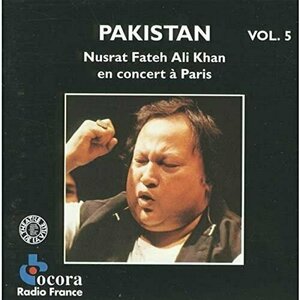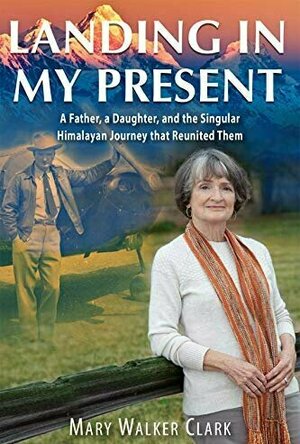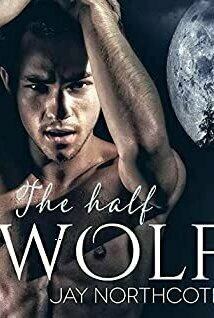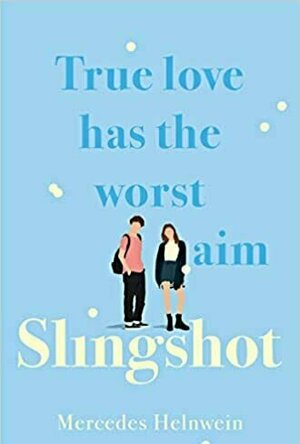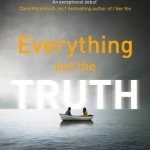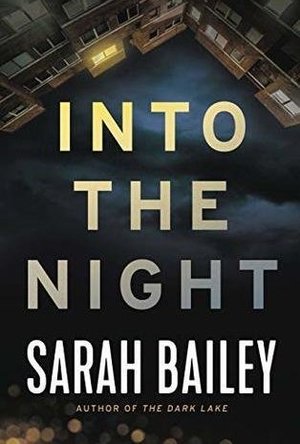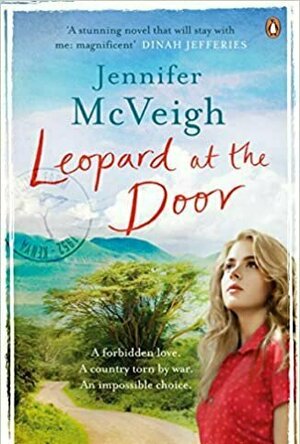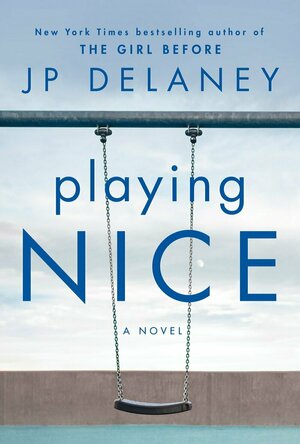Search
Search results
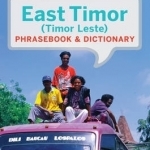
Lonely Planet East Timor Phrasebook and Dictionary
Book
Lonely Planet: The world's #1 phrasebook publisher* Lonely Planet East Timor Phrasebook & Dictionary...
Charlie Cobra Reviews (1840 KP) rated Ad Astra (2019) in Movies
Jul 7, 2020
A Sci-Fi Film Grounded In Reality
Ad Astra is a 2019 sci-fi/adventure movie directed, produced, and co-written by James Gray. Ethan Gross was the co-writer and other producers on the film were Brad Pitt, Dede Gardner, Jeremy Kleiner, James Gray, Anthony Katagas, Rodrigo Teixeira and Arnon Milchan. The movie was produced by 20th Century Fox, Regency Enterprises, Bona Film Group, New Regency, Plan B Entertainment, RT Features, Keep Your Head Productions, MadRiver Pictures, TSG Entertainment and was distributed by Walt Disney Studios Motion Pictures. The film stars Brad Pitt, Tommy Lee Jones, Ruth Negga, Liv Tyler and Donald Sutherland.
When all life on Earth is threatened by mysterious power surges, U.S. Space Command seeks out astronaut Major Roy McBride for a special mission. He is the son of famed astronaut H. Clifford McBride, who headed the "Lima Project" which purpose was to search the Solar System for intelligent life. Now, after sixteen years of silence and his father believed dead, they inform Roy that the surges have been traced back to the "Lima Project" and he must travel Mars to try and contact his father to save the Earth.
I was super excited about this movie before watching it in theaters. Even though I saw the trailers, I made sure not to read up on it or watch them too much because I didn't want for anything to spoil it for me. Honestly after watching it, I still have mixed feelings. In a lot of ways I liked the film but almost equally I didn't. There was a lot that I was kind of disappointed in but also a lot that happened different than what I thought was going to happen, especially when it came to the plot. This movie was very realistic for a science fiction space movie when I thought it was going to be more fantastical. I think that was the main reason for me not liking it as much as I thought I would, also the pacing threw me off because this movie was really long. I kept waiting for it to get good and it never really did. There were a couple of good scenes overall but I agree with some critics or reviewers who said that it either needed to be shorter or a lot longer and made into a mini-series. I thought Brad Pitt did an excellent job in his role as Major Roy McBride but I understand people who criticized his performance because his character is very unemotional. I also really liked Ruth Negga's performance and think she did a fantastic job. I was let down that Tommy Lee Jones didn't have as much screen time as I thought he was going to, double for Donald Sutherland as well. Not a lot more I can say without spoiling parts of the movie. I wound up giving this movie a 6/10. I would have given it a point lower but there's a lot that makes this film above normal.
When all life on Earth is threatened by mysterious power surges, U.S. Space Command seeks out astronaut Major Roy McBride for a special mission. He is the son of famed astronaut H. Clifford McBride, who headed the "Lima Project" which purpose was to search the Solar System for intelligent life. Now, after sixteen years of silence and his father believed dead, they inform Roy that the surges have been traced back to the "Lima Project" and he must travel Mars to try and contact his father to save the Earth.
I was super excited about this movie before watching it in theaters. Even though I saw the trailers, I made sure not to read up on it or watch them too much because I didn't want for anything to spoil it for me. Honestly after watching it, I still have mixed feelings. In a lot of ways I liked the film but almost equally I didn't. There was a lot that I was kind of disappointed in but also a lot that happened different than what I thought was going to happen, especially when it came to the plot. This movie was very realistic for a science fiction space movie when I thought it was going to be more fantastical. I think that was the main reason for me not liking it as much as I thought I would, also the pacing threw me off because this movie was really long. I kept waiting for it to get good and it never really did. There were a couple of good scenes overall but I agree with some critics or reviewers who said that it either needed to be shorter or a lot longer and made into a mini-series. I thought Brad Pitt did an excellent job in his role as Major Roy McBride but I understand people who criticized his performance because his character is very unemotional. I also really liked Ruth Negga's performance and think she did a fantastic job. I was let down that Tommy Lee Jones didn't have as much screen time as I thought he was going to, double for Donald Sutherland as well. Not a lot more I can say without spoiling parts of the movie. I wound up giving this movie a 6/10. I would have given it a point lower but there's a lot that makes this film above normal.
Graham Lewis recommended En Concert A Paris by Nusrat Fateh Ali Khan in Music (curated)
https://travelingwife4life.wordpress.com/2020/07/23/landing-in-my-present-lone-star-lit/
Landing in My Present by Mary Walker Clark got me hook, line, and sinker; and for someone who does not generally read biographies that is saying something. From the opening chapter, Mary Walker Clark drew me into her story and her journey to know her father better. I enjoyed the way she shared her journey; it was like a reading story full of learning, history, emotions, and some great life lessons. From finding old letters, listening to people who had known her dad, and traveling to where he had lived, Mary brought him to life before my eyes. I cannot even imagine how awesome and meaningful her adventure was for her and her family on a personal level.
“How do you broaden your relationship with someone who has been dead 50 years?”
This question stood out to me and was part of the challenge of Mary Walker Clark’s story. Can you truly know someone who died 50 years ago? Well, I think Mary Walker Clark got pretty darn close. From the start, Mary Walker Clark weaved in her childhood memories, historical details about the different planes her dad flew, personal letters from friends of her father… It made me feel like I was on the journey with her. Gleaning a little bit more knowledge of who her dad was. It was also interesting to see how her perspective of her father grew and changed over the course of the book; it was like watching something unfold before my eyes.
I think many people can relate to Mary Walker Clark’s family, from their early compartmentalization of feelings, their hard work ethics, and how they learned that life can pass much to quickly, leaving never enough time to feel like we truly know our family. They are so similar to the dynamics in my family and many others that I know of.
The research, emotions, and time that went into this book are amazing. I rarely find a book that makes me want to cry but Mary Walker Clark wrote with such forthrightness about her experiences that it caused me to think about how much history we are losing every day because we do not take the time to sit and listen to the people around us. I am so glad I read this book, and I definitely recommend it to anyone who likes WWII history. I learned so much about WWII that I did not know beforehand, and I learned the importance of writing down or passing down the history of your family.
I give it 5 out of 5 stars for the detailed WWII history, the way Mary Walker Clark drew a picture of her dad, and for the amazing journey that Mary Walker Clark took me on which involved me in every aspect of her journey.
*I volunteered to read this book in return for my honest feedback. The thoughts and opinions expressed in this review are my own.
Landing in My Present by Mary Walker Clark got me hook, line, and sinker; and for someone who does not generally read biographies that is saying something. From the opening chapter, Mary Walker Clark drew me into her story and her journey to know her father better. I enjoyed the way she shared her journey; it was like a reading story full of learning, history, emotions, and some great life lessons. From finding old letters, listening to people who had known her dad, and traveling to where he had lived, Mary brought him to life before my eyes. I cannot even imagine how awesome and meaningful her adventure was for her and her family on a personal level.
“How do you broaden your relationship with someone who has been dead 50 years?”
This question stood out to me and was part of the challenge of Mary Walker Clark’s story. Can you truly know someone who died 50 years ago? Well, I think Mary Walker Clark got pretty darn close. From the start, Mary Walker Clark weaved in her childhood memories, historical details about the different planes her dad flew, personal letters from friends of her father… It made me feel like I was on the journey with her. Gleaning a little bit more knowledge of who her dad was. It was also interesting to see how her perspective of her father grew and changed over the course of the book; it was like watching something unfold before my eyes.
I think many people can relate to Mary Walker Clark’s family, from their early compartmentalization of feelings, their hard work ethics, and how they learned that life can pass much to quickly, leaving never enough time to feel like we truly know our family. They are so similar to the dynamics in my family and many others that I know of.
The research, emotions, and time that went into this book are amazing. I rarely find a book that makes me want to cry but Mary Walker Clark wrote with such forthrightness about her experiences that it caused me to think about how much history we are losing every day because we do not take the time to sit and listen to the people around us. I am so glad I read this book, and I definitely recommend it to anyone who likes WWII history. I learned so much about WWII that I did not know beforehand, and I learned the importance of writing down or passing down the history of your family.
I give it 5 out of 5 stars for the detailed WWII history, the way Mary Walker Clark drew a picture of her dad, and for the amazing journey that Mary Walker Clark took me on which involved me in every aspect of her journey.
*I volunteered to read this book in return for my honest feedback. The thoughts and opinions expressed in this review are my own.
Debbiereadsbook (1650 KP) rated The Half Wolf in Books
Aug 9, 2021
a different take on shifters!
Independent reviewer for Archaeolibrarian, I was gifted the audio file of this book.
Quinn has lived in Wales his whole life. He knows of shifters and their nomadic lifestyle. He also knows that they suffer a lot of prejudice. Meeting Kellan, a wolf shifter who’s camped out in the valley, throws Quinn out of sorts: MORE out of sorts that he usually feels. Their attraction is obvious, but Kellan knows he can’t have Quinn. Quinn is human and wolves and humans do not mate, do they?
I usually write a bit about the book first, then the narration, but sometimes I can’t do that because my reviews often take a life of their own and this is one such time.
Hamish Long narrates. It's so nice to NOT have an American accent in your ear, you know? Long’s talent is only just coming to my attention, and I LOVED the narration of this book. His reading voice is deep and clear, and I had no trouble keeping up with the tale. His voices for the different characters were, I thought, spot on. With a mix of Welsh, non-descript English accents fitting for nomads and even an American accent thrown in, they were varied but accurate. The voice for the rogue wolf was major creepy, but very apt. Long gets across all of Quinn’s continuing changes and feelings, and all of Kellan’s need for Quinn, but knowing he can’t have him, and how much it breaks Kellan to realise that he might have to walk away.
My only niggle, and it’s a personal one, rather than a technical one, was that at first, I thought it was Quinn and Calum, not Kellan. But at some point, there was a marked difference in the name’s delivery, and I noticed Kellan more. Might just be me and my rubbish hearing though.
The story itself is well written and well delivered. Different enough to be interesting and to totally hold my attention from start to finish. And trust me on this, that’s a tricky thing right now! (major book funk!) While I twigged something was a little different in Quinn early on, how that all played out was not how I thought it would.
The rogue wolf was called an omega here, and that’s different to other wolf shifter books and I did like that some things were tipped on their head, I really did.
Not especially heavy on the smexy stuff, but plenty of steam! It’s not really needed here, I don’t think. Quinn and Kellan have passion and attraction and that comes across well enough. It is violent though, when dealing with the rogue and I think that was needed.
Long seems to have narrated a fair few of Northcote’s books, I might have a few more hours listening on my audio list now!
4 stars for the book
5 stars for the narration
4.5 overall but rounded UP for the blog.
**same worded review will appear elsewhere**
Quinn has lived in Wales his whole life. He knows of shifters and their nomadic lifestyle. He also knows that they suffer a lot of prejudice. Meeting Kellan, a wolf shifter who’s camped out in the valley, throws Quinn out of sorts: MORE out of sorts that he usually feels. Their attraction is obvious, but Kellan knows he can’t have Quinn. Quinn is human and wolves and humans do not mate, do they?
I usually write a bit about the book first, then the narration, but sometimes I can’t do that because my reviews often take a life of their own and this is one such time.
Hamish Long narrates. It's so nice to NOT have an American accent in your ear, you know? Long’s talent is only just coming to my attention, and I LOVED the narration of this book. His reading voice is deep and clear, and I had no trouble keeping up with the tale. His voices for the different characters were, I thought, spot on. With a mix of Welsh, non-descript English accents fitting for nomads and even an American accent thrown in, they were varied but accurate. The voice for the rogue wolf was major creepy, but very apt. Long gets across all of Quinn’s continuing changes and feelings, and all of Kellan’s need for Quinn, but knowing he can’t have him, and how much it breaks Kellan to realise that he might have to walk away.
My only niggle, and it’s a personal one, rather than a technical one, was that at first, I thought it was Quinn and Calum, not Kellan. But at some point, there was a marked difference in the name’s delivery, and I noticed Kellan more. Might just be me and my rubbish hearing though.
The story itself is well written and well delivered. Different enough to be interesting and to totally hold my attention from start to finish. And trust me on this, that’s a tricky thing right now! (major book funk!) While I twigged something was a little different in Quinn early on, how that all played out was not how I thought it would.
The rogue wolf was called an omega here, and that’s different to other wolf shifter books and I did like that some things were tipped on their head, I really did.
Not especially heavy on the smexy stuff, but plenty of steam! It’s not really needed here, I don’t think. Quinn and Kellan have passion and attraction and that comes across well enough. It is violent though, when dealing with the rogue and I think that was needed.
Long seems to have narrated a fair few of Northcote’s books, I might have a few more hours listening on my audio list now!
4 stars for the book
5 stars for the narration
4.5 overall but rounded UP for the blog.
**same worded review will appear elsewhere**
An honest and emotional YA read
Grace Welles is fifteen, trapped at a third-rate boarding school in Florida, and pretty much resigned to a lonely and miserable life. Her father has another (real) family in California, sneaking away to occasionally remember that Grace and her beautiful, flighty mother exist. Grace has no friends. But one day she helps a fellow student, Wade, who is being attacked by a group of popular boys. The two form a strange friendship that eventually blossoms into more. Suddenly, life has meaning. But with this meaning, comes feelings, and the realization that there may be more to Wade than his kind and cool exterior.
I've been sitting on this review, because I honestly cannot tell if this book was amazing or terrible. I know, I know--how is that possible? Helnwein has written something very different here, in many ways: a raw, awkward story that often makes you cringe and want to look away. She spares no detail (or language) when covering Gracie's forays into friendship, drinking, and sex. You forget she's fifteen/sixteen, which is probably what makes it so hard, at times. Yes, she's alone at boarding school, but still? Is this what happens at boarding school? Perhaps that's my problem with all boarding school tales. (At least no one gets murdered.) It's a paradox. Grace falls in love with her biology teacher, which seems sweetly realistic. But when he rejects her, she curses him, destroys his property, and more--is this truly allowed, even at a third rate school? Every thing is excused as "needing the tuition money." Not so realistic.
If you're able to overlook the terrifying behavior of these young students (perhaps made all the more frightening to me, as the mother of young daughters, one of whom is actually named Grace), there are some poignant moments here. Helnwein really does capture the beauty and absolute fear of falling in love for the first time, and Grace and Wade's relationship is pretty magical. The self-centeredness of adolescence--how the world revolves around nothing else. Much of Grace's coming of age is realizing that a great big world exists beyond her. But it's tender and sweet watching her fall. There are some cute friendships too.
At many times, this is a funny and heartbreaking book. There are a lot of serious topics hidden between the craziness. Gracie and Wade are truly lovely characters, and I cared for both of them deeply. I think I was just thrown by some of the characters acting/speaking older than their age and the fact that the book truly tells it how it is, right in your face. It takes a bit of an adjustment. I'm not sure this book is for everyone, but there's a tenderness and beauty to it, and I think many teens would enjoy it. 3 stars.
I've been sitting on this review, because I honestly cannot tell if this book was amazing or terrible. I know, I know--how is that possible? Helnwein has written something very different here, in many ways: a raw, awkward story that often makes you cringe and want to look away. She spares no detail (or language) when covering Gracie's forays into friendship, drinking, and sex. You forget she's fifteen/sixteen, which is probably what makes it so hard, at times. Yes, she's alone at boarding school, but still? Is this what happens at boarding school? Perhaps that's my problem with all boarding school tales. (At least no one gets murdered.) It's a paradox. Grace falls in love with her biology teacher, which seems sweetly realistic. But when he rejects her, she curses him, destroys his property, and more--is this truly allowed, even at a third rate school? Every thing is excused as "needing the tuition money." Not so realistic.
If you're able to overlook the terrifying behavior of these young students (perhaps made all the more frightening to me, as the mother of young daughters, one of whom is actually named Grace), there are some poignant moments here. Helnwein really does capture the beauty and absolute fear of falling in love for the first time, and Grace and Wade's relationship is pretty magical. The self-centeredness of adolescence--how the world revolves around nothing else. Much of Grace's coming of age is realizing that a great big world exists beyond her. But it's tender and sweet watching her fall. There are some cute friendships too.
At many times, this is a funny and heartbreaking book. There are a lot of serious topics hidden between the craziness. Gracie and Wade are truly lovely characters, and I cared for both of them deeply. I think I was just thrown by some of the characters acting/speaking older than their age and the fact that the book truly tells it how it is, right in your face. It takes a bit of an adjustment. I'm not sure this book is for everyone, but there's a tenderness and beauty to it, and I think many teens would enjoy it. 3 stars.
BookInspector (124 KP) rated Everything but the Truth in Books
Sep 24, 2020
I really don’t know, what I was expecting from this book, but it left me absolutely confused. I still can’t decide if I liked it or not. I enjoyed the story, but why did it make me feel bored at the same time?
This is a story told by Rachel, about the secrets Jack was hiding. But the funny part is, Rachel has her own secrets, which she is hiding from Jack. So there are so many lies in this book, that I am wondering, how these two even a couple. When Rachel found out that Jake is hiding something, she went all the way into finding it out. Full homemade detective: snooping around, checking emails, ordering court material, everything to find out what Jack is hiding. Why? Because Jack is not telling the truth, but amending it, to fit his needs. What she finds out shocks her, but leaves her confused as well. Is he really guilty?
I really enjoyed the determination of this little investigation. I liked the ways Rachel was seeking the truth, it was interesting to watch, and quite relatable. Most probably we all checked our other half’s phone, or observed their actions during some situations. The book was time travelling between past and present. The way author incorporated Rachel’s story from the past, with one of her cancer patients, was very amusing. I liked the way she described her feelings towards the boy, it was beautiful.
This book is full of decisions, and really difficult ones. The ones regarding Jack were quite repetitive to be honest, just like the whole wish to find everything out. It was written in so many places, why Rachel wants to know the truth, that it made it boring. Another thing, which was not my favourite, was her decision, which she should’ve taken after finding out the truth, that confusion was so dragged, that I wanted to shout “Either you want him or not, stop beating about the bush!”.
The themes used in this book where quite interesting, and they made me question myself, what I would’ve done in Jack’s place? Or, was Rachel’s decision right regarding her cancer patient? What I would’ve done in her place? That’s why this book made me confused, because it has really deep meaning and interesting topics, but it was boring at the same time.
The writing style of this novel is easy to read, with lovely and short chapters. This book didn’t offer any twists or turns in my opinion, and kind of just plodded along. Whatever twists or turns supposedly were in this book, were really predictable, even the ending of the book was predictable. So to conclude, I enjoyed some of the parts of this book, but I think it could’ve been better. Doctors, nurses, or people who have someone suffering from cancer would find this book close to their hearts and maybe a good read…
Was given this book by publisher and NetGalley for honest review.
This is a story told by Rachel, about the secrets Jack was hiding. But the funny part is, Rachel has her own secrets, which she is hiding from Jack. So there are so many lies in this book, that I am wondering, how these two even a couple. When Rachel found out that Jake is hiding something, she went all the way into finding it out. Full homemade detective: snooping around, checking emails, ordering court material, everything to find out what Jack is hiding. Why? Because Jack is not telling the truth, but amending it, to fit his needs. What she finds out shocks her, but leaves her confused as well. Is he really guilty?
I really enjoyed the determination of this little investigation. I liked the ways Rachel was seeking the truth, it was interesting to watch, and quite relatable. Most probably we all checked our other half’s phone, or observed their actions during some situations. The book was time travelling between past and present. The way author incorporated Rachel’s story from the past, with one of her cancer patients, was very amusing. I liked the way she described her feelings towards the boy, it was beautiful.
This book is full of decisions, and really difficult ones. The ones regarding Jack were quite repetitive to be honest, just like the whole wish to find everything out. It was written in so many places, why Rachel wants to know the truth, that it made it boring. Another thing, which was not my favourite, was her decision, which she should’ve taken after finding out the truth, that confusion was so dragged, that I wanted to shout “Either you want him or not, stop beating about the bush!”.
The themes used in this book where quite interesting, and they made me question myself, what I would’ve done in Jack’s place? Or, was Rachel’s decision right regarding her cancer patient? What I would’ve done in her place? That’s why this book made me confused, because it has really deep meaning and interesting topics, but it was boring at the same time.
The writing style of this novel is easy to read, with lovely and short chapters. This book didn’t offer any twists or turns in my opinion, and kind of just plodded along. Whatever twists or turns supposedly were in this book, were really predictable, even the ending of the book was predictable. So to conclude, I enjoyed some of the parts of this book, but I think it could’ve been better. Doctors, nurses, or people who have someone suffering from cancer would find this book close to their hearts and maybe a good read…
Was given this book by publisher and NetGalley for honest review.
BookInspector (124 KP) rated Into the Night in Books
Sep 24, 2020
Our protagonist in this story is Gemma, she moved from a little town to Melbourne, leaving her family behind, to try and start her life fresh. She is assigned to a couple of murders, first of all, we have a homeless man stabbed in an alley, followed shortly by a stabbing of a movie star. Are these murders related? Who stabbed the celebrity and why? These questions followed me all the way throughout the pages of this novel.
I really liked Gemma in this book. In the first book I didn’t support her actions, and couldn’t understand her behaviour, but in this book, she explained her actions a little better, and I was able to have a better glimpse into her inner personality. I really liked that the author chose the characters who are hard to read and incredibly disturbed, they give the book this mysterious aura, and as a reader, I like the challenge of trying to figure them out. 😀 I really enjoyed the variety and diversity of the characters as well, from homeless and poor, to rich and famous, and everything in between. 🙂 I did like the parts, where Gemma was sharing her personal feelings, they allowed to get to know her better, but in some places, these parts were a bit too long, and my mind tended to wander off…
The narrative is told from a single perspective, and there is quite a lot happening in this book. The spotlight is on the famous actor’s death, but there are other two cases (homeless man and an escort), which remain in the shadows for most of the time, appearing just briefly here and there. The investigation is going on quite slowly, but paired with other murders and Gemma’s life, the story didn’t drag to me. Even though I missed more twists, I did like the turns author brought to this book, they were quite unexpected to me.
I really liked the writing style, I think it was creative and very well thought through, with decent length chapters, which made my reading experience very enjoyable. I liked the setting of this book, it changed between different places, and I appreciate that the author skipped the unimportant events. I thought that I figured out the reasoning for the murders halfway through the book, but I was really happy to be proved wrong. 😀 I really liked the ending of this book, I think it concluded this story nicely, however, I still couldn’t fully figure out what Gemma wants. 😀
So, to conclude, I can see author’s improvement in this book, the characters picked for this novel are challenging and intriguing, the plot is very creatively layered and complex, filled with unexpected discoveries. I strongly recommend this book if you are looking for a different thriller, where the protagonist is as important as the investigation. I hope you will enjoy it as much as I did.
I really liked Gemma in this book. In the first book I didn’t support her actions, and couldn’t understand her behaviour, but in this book, she explained her actions a little better, and I was able to have a better glimpse into her inner personality. I really liked that the author chose the characters who are hard to read and incredibly disturbed, they give the book this mysterious aura, and as a reader, I like the challenge of trying to figure them out. 😀 I really enjoyed the variety and diversity of the characters as well, from homeless and poor, to rich and famous, and everything in between. 🙂 I did like the parts, where Gemma was sharing her personal feelings, they allowed to get to know her better, but in some places, these parts were a bit too long, and my mind tended to wander off…
The narrative is told from a single perspective, and there is quite a lot happening in this book. The spotlight is on the famous actor’s death, but there are other two cases (homeless man and an escort), which remain in the shadows for most of the time, appearing just briefly here and there. The investigation is going on quite slowly, but paired with other murders and Gemma’s life, the story didn’t drag to me. Even though I missed more twists, I did like the turns author brought to this book, they were quite unexpected to me.
I really liked the writing style, I think it was creative and very well thought through, with decent length chapters, which made my reading experience very enjoyable. I liked the setting of this book, it changed between different places, and I appreciate that the author skipped the unimportant events. I thought that I figured out the reasoning for the murders halfway through the book, but I was really happy to be proved wrong. 😀 I really liked the ending of this book, I think it concluded this story nicely, however, I still couldn’t fully figure out what Gemma wants. 😀
So, to conclude, I can see author’s improvement in this book, the characters picked for this novel are challenging and intriguing, the plot is very creatively layered and complex, filled with unexpected discoveries. I strongly recommend this book if you are looking for a different thriller, where the protagonist is as important as the investigation. I hope you will enjoy it as much as I did.
BookInspector (124 KP) rated Leopard at the Door in Books
Sep 24, 2020
More reviews at https://bbookinspector.wordpress.com
My favourite genre to read normally is mystery, crime or thrillers, but I try to choose different genres from time to time. I need to rest from investigations and murders, that’s where historical fiction, YA and other books come in. This book is no exception; I needed something to clear my mind, and it really done the job.
Let me begin by saying, that I loved the environment used in this book. Author portrayed the surroundings and places in this book with great detail, and made me actually feel the African spirit. So, all her travels through Africa, really helped her to describe what she felt to the reader.
The main character in this book was Rachel, and she was the one to share her life with a reader. This novel had a huge variety of very diverse characters, some of them positive and dear to the heart, and some of them really negative, which made me really angry about them. Unfortunately, I did not have any favourite character in this book, as I felt they were not fully developed and opened up to the reader. I would’ve liked to read different perspectives and have more insight into different personalities. Even though I really tried to like Rachel’s rebellious views and kind heart, I think some of her decisions were really silly and disappointing.
The narrative of this novel starts in 1952, when British Empire is on a verge of collapsing, and Kenya wishes its independence. I absolutely adored all the details about Mau Mau, their ideology and ways of action. I loved Michael’s thoughts about war and his country’s independence. I think, this book was really well researched and the whole spirit of the book was shared just gorgeously. The whole story was flowing very smoothly, with some turns and twists, which kept me interested. There was a great love story going on in this book, but I would’ve liked it to be a bit more passionate than it was. Author discussed some interesting topics in this book, such as: Life after mother’s death and relationship with a stepmother; feelings, when you don’t have anyone to turn to; love and betrayal.
The writing style of this novel was not difficult to read, but it contains some African words, which were explained at the end of the book. (If you read it on Kindle, it’s not very helpful) The chapters of this book have decent length, but it might drag a little, because there is not much action going on in this novel. The ending was quite interesting and done the justice to the book and Rachel, but still left me questioning about “What happened to Michael?” So, overall, I actually enjoyed this story of wish for independence, unexpected love, family difficulties and betrayal, and I would recommend immersing yourself into this beautiful Kenyan setting.
Was given this book by publisher and NetGalley for honest review.
My favourite genre to read normally is mystery, crime or thrillers, but I try to choose different genres from time to time. I need to rest from investigations and murders, that’s where historical fiction, YA and other books come in. This book is no exception; I needed something to clear my mind, and it really done the job.
Let me begin by saying, that I loved the environment used in this book. Author portrayed the surroundings and places in this book with great detail, and made me actually feel the African spirit. So, all her travels through Africa, really helped her to describe what she felt to the reader.
The main character in this book was Rachel, and she was the one to share her life with a reader. This novel had a huge variety of very diverse characters, some of them positive and dear to the heart, and some of them really negative, which made me really angry about them. Unfortunately, I did not have any favourite character in this book, as I felt they were not fully developed and opened up to the reader. I would’ve liked to read different perspectives and have more insight into different personalities. Even though I really tried to like Rachel’s rebellious views and kind heart, I think some of her decisions were really silly and disappointing.
The narrative of this novel starts in 1952, when British Empire is on a verge of collapsing, and Kenya wishes its independence. I absolutely adored all the details about Mau Mau, their ideology and ways of action. I loved Michael’s thoughts about war and his country’s independence. I think, this book was really well researched and the whole spirit of the book was shared just gorgeously. The whole story was flowing very smoothly, with some turns and twists, which kept me interested. There was a great love story going on in this book, but I would’ve liked it to be a bit more passionate than it was. Author discussed some interesting topics in this book, such as: Life after mother’s death and relationship with a stepmother; feelings, when you don’t have anyone to turn to; love and betrayal.
The writing style of this novel was not difficult to read, but it contains some African words, which were explained at the end of the book. (If you read it on Kindle, it’s not very helpful) The chapters of this book have decent length, but it might drag a little, because there is not much action going on in this novel. The ending was quite interesting and done the justice to the book and Rachel, but still left me questioning about “What happened to Michael?” So, overall, I actually enjoyed this story of wish for independence, unexpected love, family difficulties and betrayal, and I would recommend immersing yourself into this beautiful Kenyan setting.
Was given this book by publisher and NetGalley for honest review.
Kristy H (1252 KP) rated Playing Nice in Books
Sep 17, 2020
Fast-paced thriller that plays on your emotions
Pete Riley, his wife Maddie, and young son Theo have their lives upended one day when two strangers show up on their doorstep. One claims to be Theo's biological father, Miles Lambert. He tells Pete that Theo and another baby, David--whom the Lamberts have been raising--were switched at the hospital and sent home with the unsuspecting families. Suddenly Pete and Maddie have been raising "the wrong" child for the past two years. The families form a friendship based on their shock, agreeing not to upend the children's lives. But as the Lamberts prepare to the sue hospital, questions are raised, and soon Pete and Maddie start to wonder how much they can trust Miles and his wife, Lucy. What are they hiding--and how far will they go to get Theo back?
"'I'm sorry to have to tell you that Theo isn't your son. He's mine.'"
Delaney's latest is a fast and compulsive read. Told in alternating perspectives from Maddie and Pete, with some flashes to the past, the book is stressful and makes you think. What would I do in this situation? And what a terrible situation to be in. With both boys being two-years-old, they are already comfortable in their family lives. At first, each family is determined not to switch the children back. But it soon becomes clear that Theo is progressing better than David, who requires more specialized care. Is that what's affecting Miles out-sized affection for his newfound son? His constant, unannounced appearances on Pete and Maddie's doorstep? Meanwhile, Maddie feels wracked with guilt at leaving David behind. The emotions and decisions are clearly complicated.
I myself was fascinated that Delaney brought up a "baby switch" case in Charlottesville, VA at the hospital where I was born, though far earlier. If I had known about this case, I must have forgotten; I would have been in my mid-teens and probably not caring about such things at the time. Anyway, it was intriguing to hear a local reference, and it totally pushed me down the rabbit hole of researching that case (which is completely tragic).
It's hard to truly like any of these characters, even Maddie and Pete, who are initially sympathetic. Let's not even get started on Miles, who truly plays the villain well. But I appreciated that the characters and their feelings are complicated and well-portrayed here. While much of the story is character-driven, it's also a mystery, unraveling what happened when the boys were switched, and it's quite interesting.
The plot in this one moves quickly, escalating fast. I predicted the ending, but it didn't do much to diminish my enjoyment of the book. If you're looking for a different and fast-paced thriller, which also gets you thinking about emotional family dilemmas, definitely recommend. 3.5 stars.
"'I'm sorry to have to tell you that Theo isn't your son. He's mine.'"
Delaney's latest is a fast and compulsive read. Told in alternating perspectives from Maddie and Pete, with some flashes to the past, the book is stressful and makes you think. What would I do in this situation? And what a terrible situation to be in. With both boys being two-years-old, they are already comfortable in their family lives. At first, each family is determined not to switch the children back. But it soon becomes clear that Theo is progressing better than David, who requires more specialized care. Is that what's affecting Miles out-sized affection for his newfound son? His constant, unannounced appearances on Pete and Maddie's doorstep? Meanwhile, Maddie feels wracked with guilt at leaving David behind. The emotions and decisions are clearly complicated.
I myself was fascinated that Delaney brought up a "baby switch" case in Charlottesville, VA at the hospital where I was born, though far earlier. If I had known about this case, I must have forgotten; I would have been in my mid-teens and probably not caring about such things at the time. Anyway, it was intriguing to hear a local reference, and it totally pushed me down the rabbit hole of researching that case (which is completely tragic).
It's hard to truly like any of these characters, even Maddie and Pete, who are initially sympathetic. Let's not even get started on Miles, who truly plays the villain well. But I appreciated that the characters and their feelings are complicated and well-portrayed here. While much of the story is character-driven, it's also a mystery, unraveling what happened when the boys were switched, and it's quite interesting.
The plot in this one moves quickly, escalating fast. I predicted the ending, but it didn't do much to diminish my enjoyment of the book. If you're looking for a different and fast-paced thriller, which also gets you thinking about emotional family dilemmas, definitely recommend. 3.5 stars.

